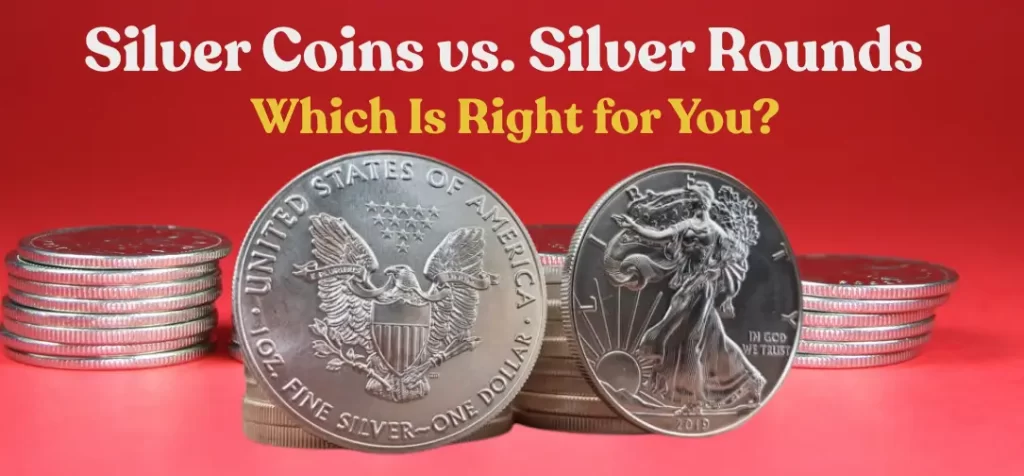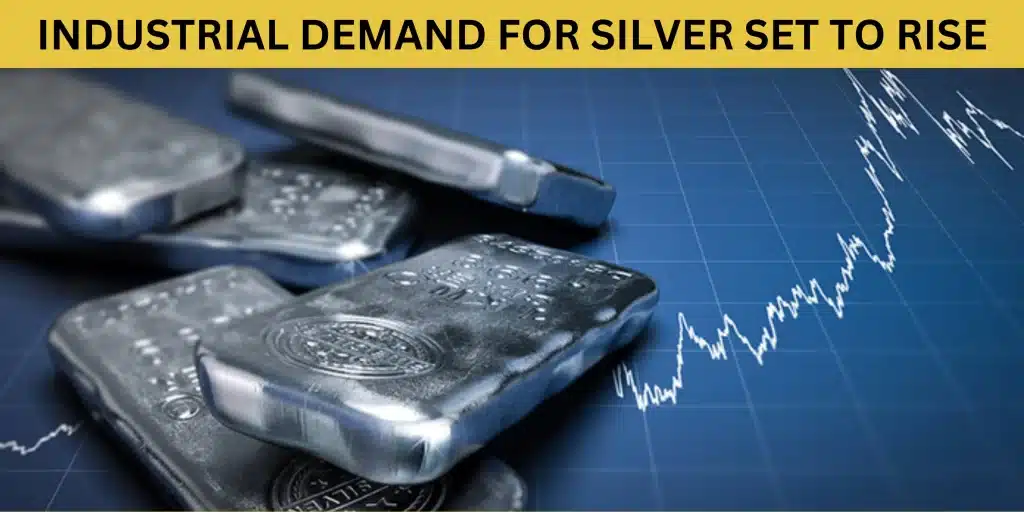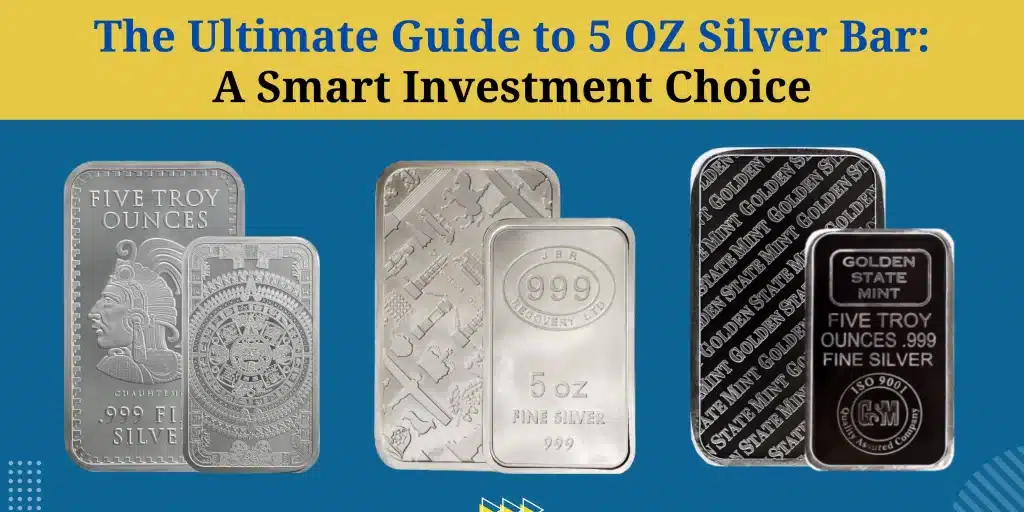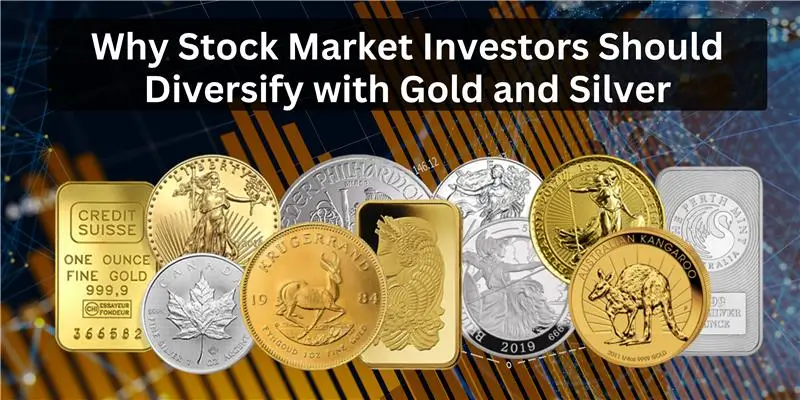Silver Coins vs. Silver Rounds – Which Is Right for You?
Introduction
When it comes to investing in physical silver, two popular options are silver coins and silver rounds. While they may look similar at first glance, there are key differences that could impact your decision depending on your goals—whether it’s long-term investment, collection, or even gifting. In this blog, we’ll break down the major distinctions and help you choose what suits your needs best.

What Are Silver Coins?
Silver coins are government-issued bullion products that have a face value and are legal tender. These coins are produced by official mints such as the U.S. Mint or the Royal Canadian Mint. Popular examples include the American Silver Eagle, Canadian Maple Leaf, and Austrian Philharmonic.
They’re typically made with .999 fine silver and feature iconic designs, security features, and a guaranteed weight and purity by their issuing government.
What Are Silver Rounds?
Silver rounds are privately minted bullion products that contain the same amount of silver (usually 1 oz of .999 fine silver), but they are not legal tender. This means they hold no face value and are not backed by any government.
Silver rounds often feature unique or custom designs—from classic liberty heads to commemorative pieces or even pop culture themes.
Key Differences Between Silver Coins and Silver Rounds
- Legal Tender Status
- Coins: Backed by a government, have face value, and are recognized as legal tender.
- Rounds: Not legal tender, no face value, produced by private mints.
- Design & Minting
- Coins: Feature national emblems, iconic figures, and official mint marks.
- Rounds: Can have a wide variety of designs, often artistic or commemorative.
- Premiums & Pricing
- Coins: Higher premiums due to government backing and collectibility.
- Rounds: Lower premiums, making them more affordable for bulk stacking.
- Recognizability & Liquidity
- Coins: More widely recognized and trusted, making them easier to resell.
- Rounds: Less recognizable, though still easily tradable among stackers and collectors.
Still Confused? Here’s How to Choose Between Coins and Rounds
Your investment goals will ultimately determine the best choice:
- If you’re looking for a secure and recognizable investment that’s easy to resell, silver coins may be the better choice.
- If your goal is to maximize silver content for the lowest premium, silver rounds can offer better value.
- Collectors may enjoy both—coins for their historical and national designs, and rounds for their creative artistry.
Pro Tip: Diversify Your Silver Stack
Don’t want to choose? Many savvy investors mix both coins and rounds to diversify their silver holdings. This strategy balances recognizability and value while opening the door to collectibility and creativity.
Pros and Cons of Silver Coins
Pros:
- Backed by government mints
- Highly recognized and liquid
- Collectible and aesthetically appealing
- Often include security features
Cons:
- Higher premiums
- May be subject to more regulations or reporting in some countries
Pros and Cons of Silver Rounds
Pros:
- Lower premiums (more silver for your money)
- Unique designs and custom minting options
- Great for bulk stacking
Cons:
- Not legal tender
- May have lower resale value due to lesser recognition
Which Is Better for You?
- If you’re looking for a secure and recognizable investment that’s easy to resell, silver coins may be the better choice.
- If your goal is to maximize silver content for the lowest premium, silver rounds can offer better value.
- Collectors may enjoy both—coins for their historical and national designs, and rounds for their creative artistry.
FAQs: Silver Coins vs. Silver Rounds
Q1. What is the main difference between silver coins and silver rounds?
A: The biggest difference is that silver coins are legal tender issued by government mints, while silver rounds are privately minted and not considered legal currency.
Q2. Are silver rounds a good investment?
A: Yes! Silver rounds offer lower premiums and are a cost-effective way to accumulate physical silver. They’re especially great for bulk stacking and long-term investing.
Q3. Why do silver coins cost more than silver rounds?
A: Silver coins typically carry higher premiums due to their legal tender status, government backing, collectible value, and enhanced design/security features.
Q4. Are silver rounds harder to sell than silver coins?
A: Not necessarily. While silver coins are more widely recognized, silver rounds are still in demand among silver stackers and dealers. Recognition and trust may vary based on mint and design.
Q5. Can I use silver rounds as money?
A: No. Silver rounds are not legal tender and have no face value. They’re intended purely for investment or collectible purposes.
Conclusion
Both silver coins and silver rounds have their place in a smart precious metals portfolio. Your choice depends on what matters most to you—liquidity, design, legal tender status, or cost-effectiveness.
Ready to Stack Silver?
Explore our wide collection of premium silver coins and affordable silver rounds at Gibraltarira.com. Whether you’re building your stack or expanding your collection, we’ve got something for every silver enthusiast!




